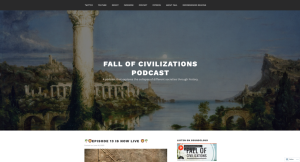General Interest
Back to Top
|
 |
|
Plantae
|
Science |
|
Plantae is "the online home of the global plant science community," offering a dynamic resource for aspiring plant biologists, professionals, and anyone interested in learning about plants and plant science. Plantae is produced by the American Society of Plant Biologists (ASPB), a non-profit organization founded in 1924 to "promote the growth and development of plant biology, to encourage and publish research in plant biology, and to promote the interests, growth, and education of plant scientists in general." Non-specialist readers will enjoy accessing resources in the Research drop-down menu, such as the "Plant Science Research Weekly," which highlights recent research in the field. Professional plant biologists or students can access ASPB journals in the same menu, including the open-access journal Plant Direct. For educators, there are useful resources in the Education drop-down, including teaching tools, webinars, and the podcast The Taproot. For aspiring plant scientists, Plantae is also an invaluable career resource, featuring job postings, a mentoring center, and a list of internships that is routinely updated. Readers should note that some aspects of the site require an account to access. [JMW] |
|





|
|
 |
|
Climate Visuals
|
Science |
|
In a world continually affected by climate change, advocacy becomes more and more important. Sometimes, in order to become advocates for sustainability and the health of the planet, readers need exposure to the harsh reality of the effects of climate change. Climate Visuals is a website and image library that draws evidence from "over 350 climate change and environmental groups, journalists, educators, and businesses," to illustrate the ways in which climate change is physically affecting the planet, its people, and their lives. Visitors may wish to use the climate visuals to explore how different regions are affected by climate change, to support a research project, to employ these unique materials in the classroom, or to educate themselves. To find these visuals, readers can browse the image library by topic or enter a specific keyword in the search bar on the page linked above. Users can also explore resources on "Evidence," "Impact," and "Partnerships," as well as "News" resources, all of which are accessible in the menu at the left side of the page (seen as a hamburger icon on tablets and mobile devices). Finally, readers can contribute their own photographs and participate in documenting climate change in their communities by clicking "Visualizing Climate Change: An open call for photography." Climate Visuals is a project of Climate Outreach, an organization dedicated to centering people in discussions about climate change. [JMW] |
|





|
|
 |
|
Predicting and Tracking Hurricanes
|
Science |
|
Sandy, Katrina, and Ida are common first names in the United States. However, due to recent events, readers may associate these names with something else: hurricanes. These dangerous weather phenomena hold the potential to destroy communities and livelihoods, and understanding hurricanes and how they form is vital to predicting and tracking these storms to ensure public safety. This teaching resource from the National Oceanic and Atmospheric Administration provides curriculum materials to educate elementary students about what hurricanes are, the science of hurricane formation, and technologies used to track and monitor these storms. This Grade 3 curriculum covers 4 lessons (taught during 7 periods of 45 minutes each), and is guided by key questions, benchmarks, and learning outcomes. It also includes background information to ensure accuracy and a bibliography for further reference. This downloadable PDF document includes links to external resources, a glossary of key terms, and more. Elementary science teachers may employ this resource to educate their students on inclement weather and how their communities can prepare for it. [JMW] |
|





|
|
 |
|
EdSurge
|
Educational Technology |
|
EdSurge is a news reporting organization focused on education, from kindergarten through higher education, and the associated changes in educational technology, research, demographics, socioeconomics, and business interests. The organization offers commentary and analysis on up-and-coming educational topics, as well as newsletters, a weekly podcast, research and journalism projects, a product index for education technology tools, a jobs board, and an events calendar. Featured articles on the site are organized into categories such as "Most Read" and "Latest News" or filtered by topic. Users can click "News" in the menu at the top of the page for articles on popular educational topics, which as of this writing includes hot-button issues such as the COVID-19 pandemic, data privacy, massive open online courses (MOOCs), and more. On the "Events" page, users can browse through, register for, and post events. The "Jobs Board" page features opportunities from educational institutions and organizations across the United States. EdSurge also produces a podcast, which is available in the More drop-down menu or on Stitcher, Spotify, Google Podcasts, and Apple Podcasts. EdSurge was founded in 2011 and is currently produced by the non-profit educators membership organization the International Society for Technology in Education. [RMP] |
|





|
|
 |
|

















